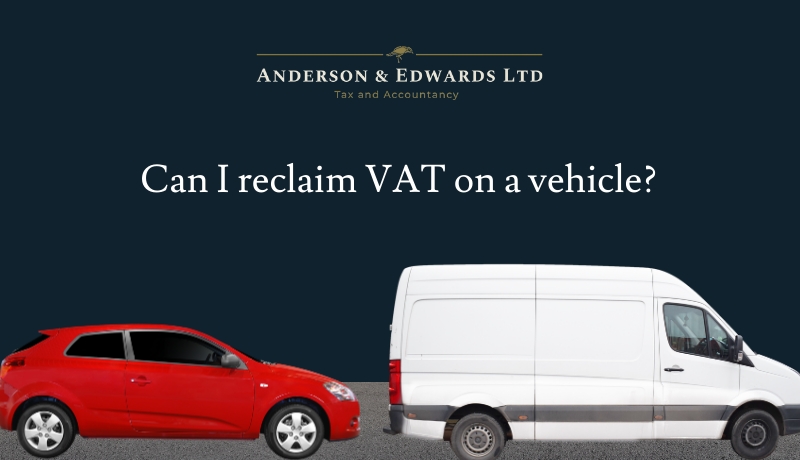
For many businesses, the acquisition of a car or van is one of the larger expenses they face. Unsurprisingly, businesses are keen to reclaim as much of the VAT as possible back from HMRC so that the cost is minimised. Unfortunately, the entitlement to recover VAT is one where “it depends”. We guide you through the main points that need to be considered when reclaiming VAT on vehicles.
In order to decide if VAT can be reclaimed, there are two main questions that need to be answered:
The distinction between car and ‘something else’ matters because cars have been designed, primarily, to provide personal transport for people. This means cars are most commonly used for ‘non-business’ activities where VAT reclaims are blocked. Some vehicles will fall fairly obviously into being either a car or not. Anything marketed/sold as a family car is likely to be a car, and, something like a truck is obviously not.
The grey area arises where there are cars based on van chassis and vans based on car chassis. With these, if there is only one row of seats and the side windows are ‘blanked’ then it’s likely to be a van – but if there are windows and multiple rows of seats it may qualify as a ‘car’ for VAT purposes. Double cab pick-up trucks that have five seats are a category to themselves, and are regarded as vans if they can carry a high enough payload. There is a list of vehicles on HMRC website that outline this (albeit the list is somewhat dated at the time of writing this).
If you’re not sure, alternatively, the V5C vehicle registration form will also show the class of vehicle: M1 is a car, and N1 is a light goods vehicle – i.e. a van.
The second criteria to consider is how the vehicle will be used. If a car is available for private and personal use then recovery of any VAT on its purchase is blocked. Avoiding this block is difficult – if a car is insured for social/domestic use then it is normally deemed to be available for private use and VAT recovery is blocked. There is longstanding case law which says even if a car is not actually used personally, the mere availability for personal use will likely preclude VAT recovery.
If you plan on using a car for personal travel, or perhaps buy it for private use in the first instance, then it is very unlikely you’ll be able to reclaim any tax on the purchase.
In order to recover VAT on a car, the vehicle really needs to be a key part of the business activity, and garaged overnight at a business premises rather than an owner/employee’s home. Vehicles like driving school cars, hire cars, and chauffeur drive cars are the most likely to qualify.
In theory it is also possible to recover VAT on a ‘pool’ car that is available for general staff use. However, this generally only works in practice for larger organisations, where many different people use the vehicle and travel to/with clients is an integral feature of the business’ activities. In order to support a VAT claim, it is advisable to keep a detailed diary of each vehicle’s use, to evidence to HMRC that it has been used by many staff, and all journeys are necessarily on business. For example, a letting agent where cars have been heavily branded, and are used to transport prospective tenants to viewings, and allow agents to inspect properties might qualify for VAT recovery.
If there is any doubt about a car’s use, it is often wise to disclaim the VAT on the initial purchase and avoid risk of penalties for claiming it incorrectly.
If the vehicle is a van or other commercial vehicle, the position is a little simpler. HMRC have granted a concession that assumes any personal use of a commercial vehicle is ‘incidental’ (and relatively minimal compared) to the main business use. In practice, this means that VAT can often be recovered on the acquisition of commercial vehicles.
There are two further points that are worth mentioning:
Unfortunately, determining the right answer for any specific vehicle requires a detailed review (like with most tax queries). If VAT is a concern, businesses should ideally seek advice from their tax adviser before completing any new vehicle acquisitions.
The above commentary is a general guide only, and should not form the basis of specific decision-making. If you have any questions about VAT on vehicles or anything else, feel free to give us a ring on 0131 364 4191 or email Enable JavaScript to view protected content.
© 2025 Anderson & Edwards Ltd|Registered in Scotland SC678768|Privacy Policy|Website by Broxden